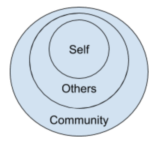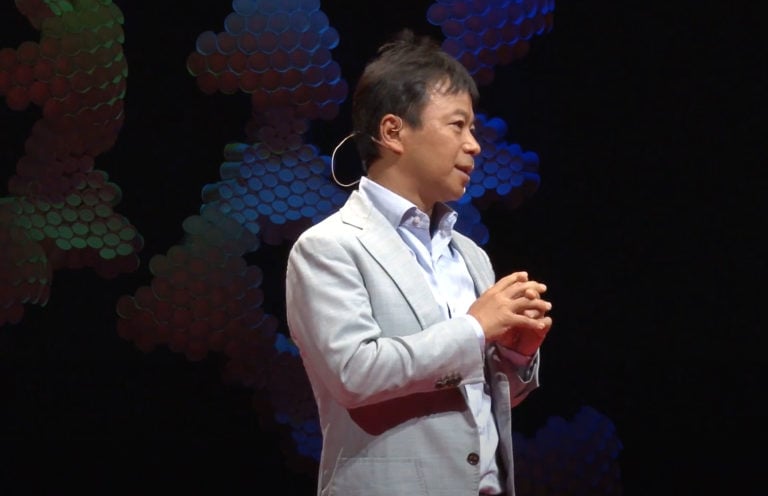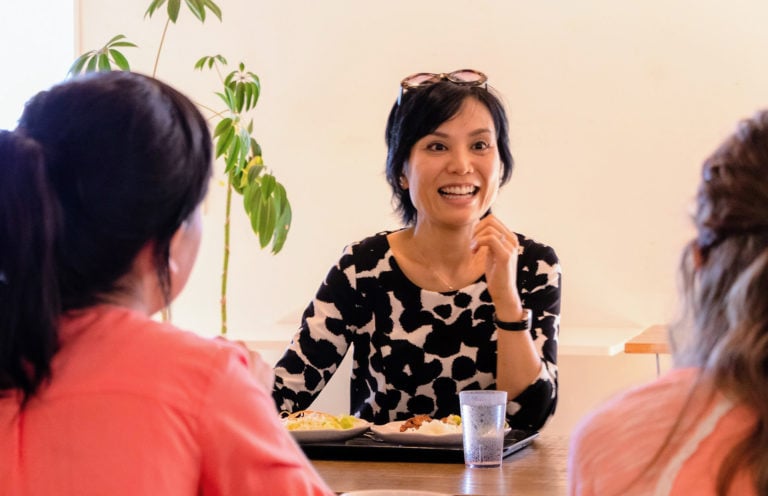 Written by Izumi Tsurumi
Written by Izumi Tsurumi
Ms. Tsurumi coordinates the Leadership program at UWC ISAK Japan. She also teaches IB Biology.
Leadership is required in times of uncertainty and challenge, not when circumstances are smooth-sailing and pleasant.
One of the key aspects of the leadership practice is for each of us to choose to take purposeful actions based on what is important and needed even during uncertainty. For the G10 Project Week, students participated in various challenges to nurture this aspect of the leadership practice. These challenges included: making giant catapults, hiking, jumping off a 10 metre pole, climbing over a 3 metre wall and making a documentary on the ‘Humans of Karuizawa’.
 In each of the challenges, students were asked to pay attention to the three layers of our community: self, others, and the wider community/environment, and take actions important for themselves, to support others, and in service to their environment. To be honest, at the beginning of the project week, students seemed to not quite grasp the idea of what we were asking them to do. Many of them were waiting for others to step up, were waiting for others to tell them what to do, and waiting for others to solve their problems. As one of the faculty facilitators, I was a little frustrated, as I wished deeply that students learned to take purposeful actions based on what was important and needed.
In each of the challenges, students were asked to pay attention to the three layers of our community: self, others, and the wider community/environment, and take actions important for themselves, to support others, and in service to their environment. To be honest, at the beginning of the project week, students seemed to not quite grasp the idea of what we were asking them to do. Many of them were waiting for others to step up, were waiting for others to tell them what to do, and waiting for others to solve their problems. As one of the faculty facilitators, I was a little frustrated, as I wished deeply that students learned to take purposeful actions based on what was important and needed.
However over the week, as students underwent a journey of challenges, they showed transformational changes. The biggest change I witnessed was each one’s ability to pay attention to the needs of others and to step up to take actions to support their teams. Over the week, as students trusted their life to their friends as each one jumped off the 10 metre pole, shared stories about themselves deep and dear to them that made them vulnerable, they got to understand, care about, and trust each other.
The support they extended to each other was witnessed in various challenges that presented uncertainty. I still remember very vividly one team working to get each student over the 3 metre wall, and one student was experiencing extreme difficulty getting over the wall. At this point, another student volunteered to put himself at the top of the wall to help pull this student up, but as he did, he realized how scared he was to be on the top of the 3 metre wall with no lifeline, and to have the responsibility to get this student over the wall. He kept mentioning to his friend how scared he was, but through numerous attempts, and through uncertainty, he threw himself to support the student to climb over the wall, and eventually succeeded! I witnessed such beautiful collaborations in other projects, from making a documentary in teams, cooking dinner for each other and in doing a whole day hike. Students took responsibility for themselves and for others, supported them and gracefully and courageously organized themselves through uncertainty, although at times, the circumstances brought up anxiety and frustration. Furthermore, with the support of others, students were increasingly more courageous and achieving tasks outside of the comfort zone.
My deepest hope is that students can carry this awareness, courage, support and action-taking skills that they cultivated during this week throughout their life, and get better at taking purposeful actions based on what’s important and needed in times of challenges and uncertainty.




